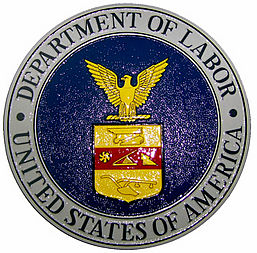 On November 1, 2016, the IRS issued Notice 2016-66 imposing reporting requirements on certain transactions by small captive insurance companies. The notice places heightened scrutiny on micro-captives by describing them as “transactions of interest.” That designation subjects them to additional reporting requirements for 2016 returns as well as earlier years.
On November 1, 2016, the IRS issued Notice 2016-66 imposing reporting requirements on certain transactions by small captive insurance companies. The notice places heightened scrutiny on micro-captives by describing them as “transactions of interest.” That designation subjects them to additional reporting requirements for 2016 returns as well as earlier years.
Generally, captive insurance companies are corporations that are formed to insure related businesses. The related business (the insured) pays premiums to the captive insurance company in exchange for property and casualty-type insurance coverage. These arrangements are often established to provide coverages that might not otherwise be available commercially. Under section 831(b) of the Code, so-called small or “micro” captives can elect to exclude up to $1.2 million of premiums received from income and only pay tax on investment income. The premiums exclusion is set to go up to $2.2 million beginning in 2017. The premiums paid by the related business that set up the captive also may be deducted as a business expense under section 162.
IRS Notice 2016-66 identifies certain small captives, and substantially similar transactions, as a “transaction of interest.” The new “transaction of interest” designation throws small captive insurance company transactions, and their advisors, into a tax reporting regime that can potentially lead to penalties and examinations. The notice applies the “transaction of interest” tag to small captives that (1) have liabilities for covered losses and expenses in an amount less than 70 percent of the total premiums earned, or (2) provide premium payments as financing to an insured or related party in a transaction nontaxable to the recipient (e.g., loans).
Taxpayers will have to report the small captive “transaction of interest” annually by filing a Form 8886 with their tax returns beginning with the 2016 tax year. The disclosure information suggested by the notice includes (1) whether liabilities incurred are less than 70 percent of premiums (minus certain dividends and loans); (2) whether any loan or other financing arrangement has occurred between the captive and related parties; (3) the captive’s jurisdiction; (4) a description of the types of coverage(s); (5) how the premium(s) was/were determined, including the names and contact information for any actuary or underwriter involved; (6) a description of the claims paid; and (7) a description of the captive’s assets.
Taxpayers may also have to report separate Forms 8886 for each prior year. The Notice requires retroactive reporting for described captives that were formed on or after November 2, 2006, the date the “transaction of interest” regulations first went into effect. Under existing regulations, those prior year disclosures may be due by January 30, 2017.
Each unfiled or late-filed Form 8886 is subject to a penalty in the amount of $50,000, or $10,000 for natural persons, under section 6707A. Material advisors must also file Form 8918 and are subject to additional list maintenance requirements. Under section 6707, an unfiled or late-filed Form 8918 is subject to a penalty in the amount of $50,000 and further potential penalties.










